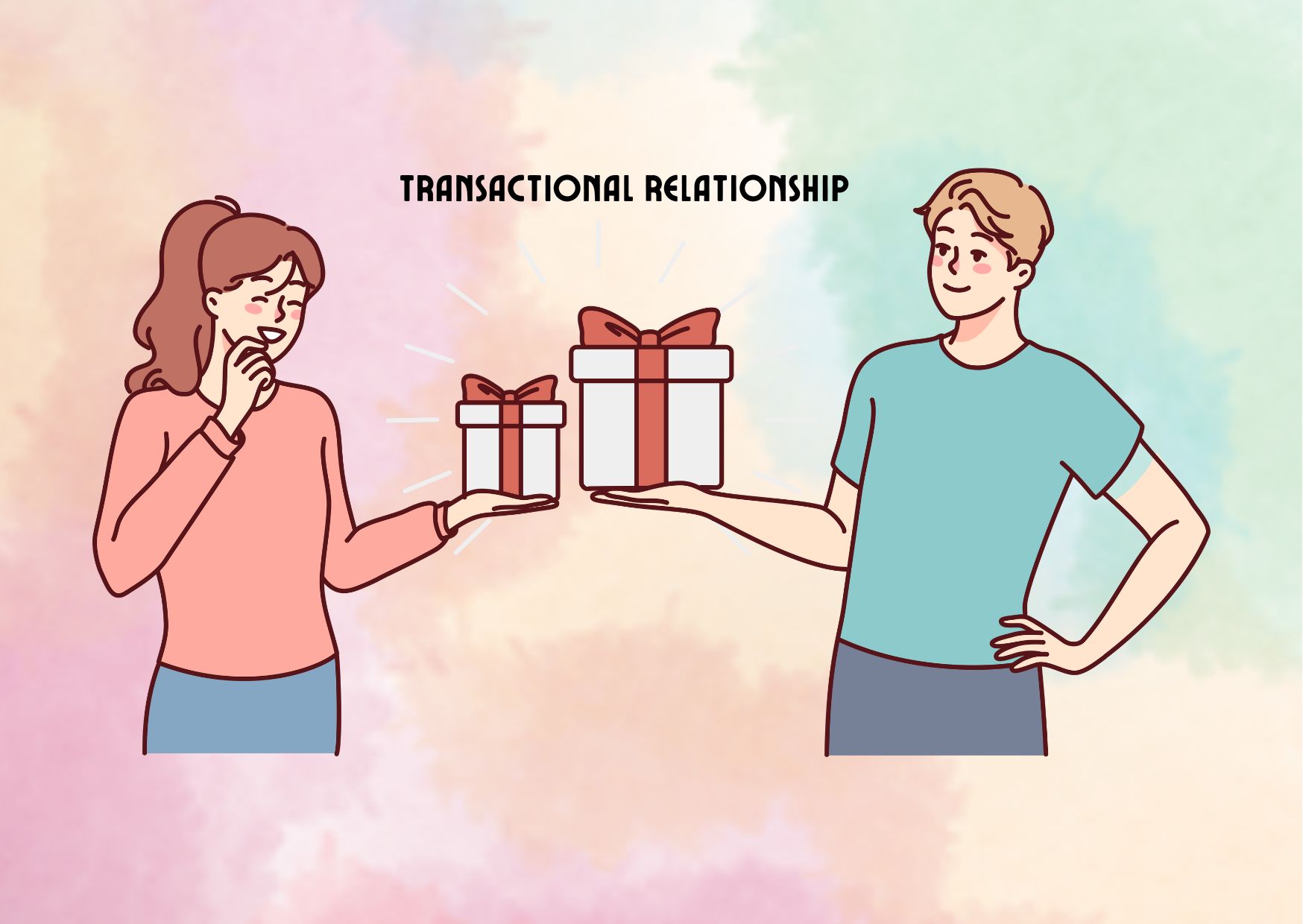Suggestion for read: 20 Common Marriage Problems
Signs You Have a Transactional Relationship
Identifying the signs of a transactional relationship is crucial for self-awareness and personal growth. Here are some common indicators:
Keeping Score
Transactional relationships often involve keeping track of who does what, leading to a sense of deficit or credit. Whether it’s financial contributions, gifts, or other actions, partners may assess their contributions and compare them to their partner’s. This scorekeeping mentality can create tension and resentment within the relationship.
Feeling One-Sided
In a transactional relationship, one partner may feel that they are giving more than they are receiving. Emotional support, availability during tough times, and general care may seem one-sided, leading to feelings of neglect and dissatisfaction.
Lack of Love and Affection
Unlike authentic connections, transactional relationships may lack genuine love and affection. Instead, they may resemble cohabitation or a business partnership, with limited emotional intimacy and romantic gestures. This lack of love and affection can leave individuals feeling unfulfilled and disconnected from their partner.
Hypergamy
Hypergamy refers to the practice of “dating up” or “marrying up” by seeking a partner of higher social status. In transactional relationships driven by hypergamy, one partner may enter the relationship primarily for the benefits associated with their partner’s social standing. This can create an imbalanced power dynamic within the relationship.
Demanding Behavior
Transactional partners may exhibit demanding behavior, expecting their partner to conform to their preferences and desires. They may impose specific dress codes, lifestyle choices, or other expectations, punishing or disapproving when their demands are not met. This behavior can inhibit personal growth and autonomy within the relationship.
Improving a Transactional Relationship
If you recognize signs of a transactional relationship in your own life, there are steps you can take to improve the situation and foster healthier connections:
Open Communication
One of the most crucial aspects of improving a transactional relationship is open and honest communication. Discuss your concerns, expectations, and needs with your partner. Encourage them to share their thoughts and feelings as well. Establishing clear lines of communication can help both partners understand each other’s perspectives and work towards finding a healthier balance.
Building Authentic Connections
Transitioning from a transactional relationship to an authentic connection requires building emotional intimacy and fostering genuine love and affection. Focus on developing shared interests, spending quality time together, and expressing love and appreciation. By prioritizing emotional connection, you can strengthen the bond between you and your partner.
Re-evaluating Expectations
Take the time to re-evaluate your expectations within the relationship. Are they realistic and fair? Are you placing too much emphasis on material gain or external validation? Reflecting on these questions can help you align your expectations with the values and emotional fulfillment you seek in a relationship.
Seeking Professional Help
Sometimes, improving a transactional relationship requires professional guidance. Online therapy and counseling services can be valuable resources in navigating relationship dynamics and improving emotional well-being. Here’s how seeking professional help can benefit you:
The Role of Online Therapy
Online therapy provides a convenient and accessible platform for individuals to seek professional help. It allows you to connect with licensed therapists from the comfort of your own home, eliminating geographical barriers. Online therapy offers a safe and confidential space to explore your relationship concerns and work towards positive change.
Benefits of Psychotherapy
Engaging in psychotherapy can provide valuable insights and tools to navigate the complexities of a transactional relationship. A therapist can help you explore underlying issues, develop effective communication skills, and facilitate personal growth. Through psychotherapy, you can gain a deeper understanding of yourself and your relationship, leading to meaningful and lasting improvements.
Conclusion
Transactional relationships, while common in today’s society, often lack the emotional depth and authenticity found in genuine connections. Recognizing the signs of a transactional relationship is the first step towards fostering healthier and more fulfilling connections. By improving communication, building authentic connections, and seeking professional help when needed, individuals can transform transactional relationships into ones that prioritize emotional intimacy, love, and mutual growth. Remember, investing in your emotional well-being and seeking support is a valuable resource for cultivating healthier and happier relationships.
At Inquire Talk, we understand the significance of mental health and well-being in relationships. As an online counseling and therapy platform, we are passionate about providing support and assistance to individuals navigating the complexities of their emotional lives. Seeking professional help and support is always a valuable resource in managing stress and promoting emotional well-being. Our therapists are dedicated to providing online counseling and therapy services to individuals seeking support and emotional well-being.
Here are few certified therapists who you can get in touch and book a therapy session with:
Julie Gravelle
Georgina Lynch
Zori Litova
